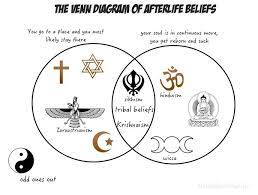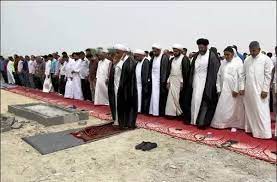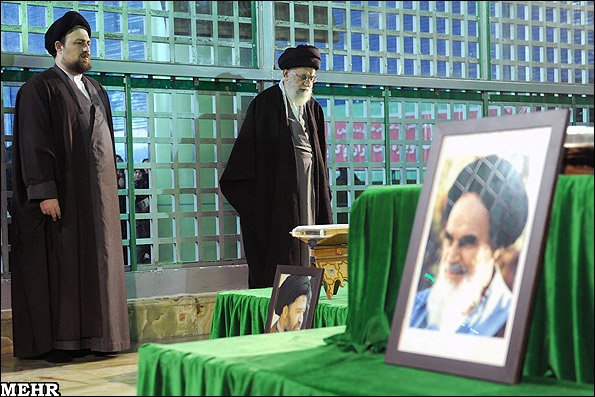Religion
10 Biggest Differences Between SUNNI and SHIA Muslims

Sunni and Shia are two unique divisions of Islam. After the prophet Muhammad’s demise in 632 AD, the Sunni and Shiite split happened. The Sunnis turned out to be even more a mainstream and moderate gathering, while the Shiites stayed more conventional and customary. While they have similar principal sees on Islam, there are numerous distinctions among Sunnis and Shiites.
So here are 10 Biggest Differences Between SUNNI and SHIA Muslims!
There Are More Sunnis Than Shiites

Biggest Differences Between SUNNI and SHIA Muslims-There Are More Sunnis Than Shiites
Around 85% of Muslims are Sunnis, passing on the Shiites to make up around 15% of the Muslim populace. There are 1.6 billion Sunnis and somewhat less than 200 million Shiites. In any case, Shiites are all the more midway found geologically, with the larger part focused around the Middle East, while Sunnis are spread all through the Muslim world, from West Africa to Indonesia.
They Disagree on Who Should Have Succeeded Muhammad

Biggest Differences Between SUNNI and SHIA Muslims-They Disagree on Who Should Have Succeeded Muhammad
This is the principal justification for the two factions existing in the Muslim people group. The Sunnis accepted that a certified and faithful individual ought to be the replacement to the Prophet, though the Shiites accept the replacement ought to have an immediate bloodline to Muhammad. Abu Bakr was the main replacement of Muhammad, yet the Shiites couldn’t help contradicting this choice. They accepted Ali ibn Abi Talib, Muhammad’s cousin and child in-regulation, ought to have dominated.
Sunnis Have a Simpler Religious Hierarchy Than Shiites

Biggest Differences Between SUNNI and SHIA Muslims-Sunnis Have a Simpler Religious Hierarchy Than Shiites
Shiites have full oversight over their ordered progression, and the church generally comes from an immediate line of Ali. This group likewise depends on strict gifts; consequently government contribution is superfluous. The Sunnis, notwithstanding, permit government inclusion, and selecting pioneers is a major local area process. Inside the Sunni pastorate, no pecking order really exists, as a matter of fact.
Their After-Life Philosophies Differ

Biggest Differences Between SUNNI and SHIA Muslims-Their After-Life Philosophies Differ
Both the Sunnis and Shiites accept that in existence in the wake of death there is either Paradise or Hell. The split comes while concluding how one arrives. For the Shiites, on the off chance that one accepts and follows Muhammad as well as the Twelve Imams, Paradise is ensured. The Sunnis accept that they should have confidence in Allah, His prophets, put stock in the honorable deeds introduced in the Quran, and acknowledge Muhammad as the last prophet to get an opportunity at Paradise. However, regardless of whether they the abovementioned, they are all currently helpless before Allah.
Shiites Pray Differently Than Sunnis

Biggest Differences Between SUNNI and SHIA Muslims-Shiites Pray Differently Than Sunnis
Sunnis and Shiites implore in an unexpected way, both by they way they ask truly and in how every now and again they supplicate. Both put stock in saying the five petitions per day, however the Shiites consolidate every one of the five supplications into three meetings. The Sunnis say every request independently, so they supplicate five times each day. Shiites additionally supplicate with their arms to their sides, while Sunnis ask with arms got over their chest.
Must Read :Top 10 Women With Best Figures in the World
Shiites Believe Imams Are Divinely Guided

Biggest Differences Between SUNNI and SHIA Muslims-Shiites Believe Imams Are Divinely Guided
Imams in the Shiite group are God-selected as it were. They are likewise the main genuine translators of the Quran, as per the Shiites. The Sunnis, nonetheless, allude to imams more as holy people. These imams should have major areas of strength for an in the Quran and Sunnah to be designated by the Sunni people group.
Sunnis Disagree With Self-Flagellation

Biggest Differences Between SUNNI and SHIA Muslims-Sunnis Disagree With Self-Flagellation
Sunnis can’t help contradicting the act of self-loathing such a lot of that they view it as a transgression. They don’t take part in that frame of mind in any way. Shiites, then again, practice self-loathing to honor the affliction of Hussein. These demonstrations comprise of beating one’s own back, hitting your chest with your hands, or utilizing blades and chains.
Shiites Honor Temporary Marriages

Biggest Differences Between SUNNI and SHIA Muslims-Shiites Honor Temporary Marriages
Transitory marriage is an old Islamic practice that generally happened when a man needed to go far distances. Essentially, it joins a man and lady as a couple… however, just for a foreordained and impermanent measure of time. Shiites actually accept and respect this training. Sunnis, nonetheless, view it as infidelity.
Shiites Are Allowed to Worship at Graves

Biggest Differences Between SUNNI and SHIA Muslims-Shiites Are Allowed to Worship at Graves
Sunnis emphatically go against asking at gravesites. It is seen as an evade (or sin), since it is depending on somebody other than Allah for help. Shiites are thoroughly fine with this training, and really empower it. They accept that despite the fact that an individual Shiite has died, they are still of the method of Allah, and it’s equivalent to asking anybody (living or dead) to petition God for you.
Sunnis Think Angels Don’t Have Free Will

Biggest Differences Between SUNNI and SHIA Muslims-Sunnis Think Angels Don’t Have Free Will
Both the Sunnis and Shiites have confidence in holy messengers, and that God made them from light. Nonetheless, heavenly messengers carry on with altogether different existences between the two factions. Shiites accept holy messengers comply with God’s decrees, yet they are allowed the choice to wander. In any case, Shiites accept holy messengers genuinely want to sin, so they stay saintly notwithstanding. Sunnis feel that holy messengers generally comply with God’s charges, and that is on the grounds that they have no through and through freedom by any stretch of the imagination.
Must Read:Top 5 Interesting Facts About Aladdins Monkey (Abu)


